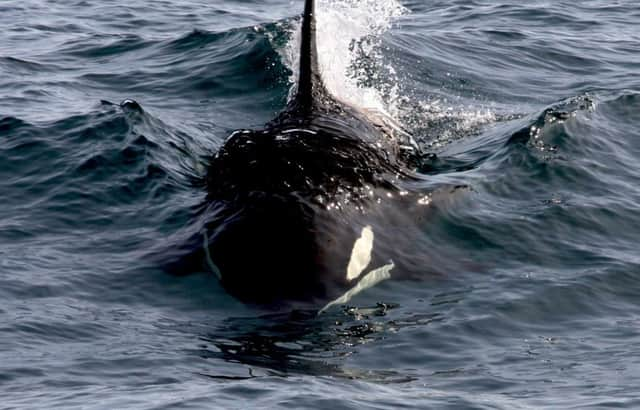Toxic chemicals in Scottish waters wiping out killer whales


Scientists say European seas are a global “hotspot” of contamination from man-made polychlorinated biphenyls (PCBs), which weaken the immune systems of whales and dolphins and seriously affect their reproduction. The seas around the Hebrides are home to the UK’s only known resident killer whales, known as the West Coast Community. Only eight are left in the pod, after a female died earlier this month.
But experts at the international conservation charity, the Zoological Society of London (ZSL), say the group “will go extinct” in the future as no young have been recorded in more than 20 years.
Advertisement
Hide AdAdvertisement
Hide AdAnd other killer whale and dolphin populations around Europe face the same fate.
The researchers suggest a failure to breed could be down to high levels of man-made PCBs building up in the animals’ body fat.
“The long life-expectancy and position as apex or top marine predators make species like killer whales and bottlenose dolphins particularly vulnerable to the accumulation of PCBs through marine food webs,” said Dr Paul Jepson, a wildlife vet at ZSL and lead author of the study.
“Few coastal orca populations remain in western European waters. Those that do persist are very small and suffering low or zero rates of reproduction.
“The risk of extinction therefore appears high for these discrete and highly contaminated populations. Without further measures, these chemicals will continue to suppress populations of orcas and other dolphin species for many decades to come.”
Dr Jepson’s team will analyse samples taken from the West Coast killer whale known as Lulu, who died recently after entanglement in fishing gear.
“This Scottish population feeds on seals, so PCB exposure through diet will be much higher than for killer whales that only eat fish,” he said.
“I think the group will, very regrettably, become extinct. Like any animal population, once you stop reproducing you will eventually die out.
“But killer whales are very long-lived animals – at least one adult female has lived to over 100 years old in the wild – so local extinction can still take a long time to play out.”
